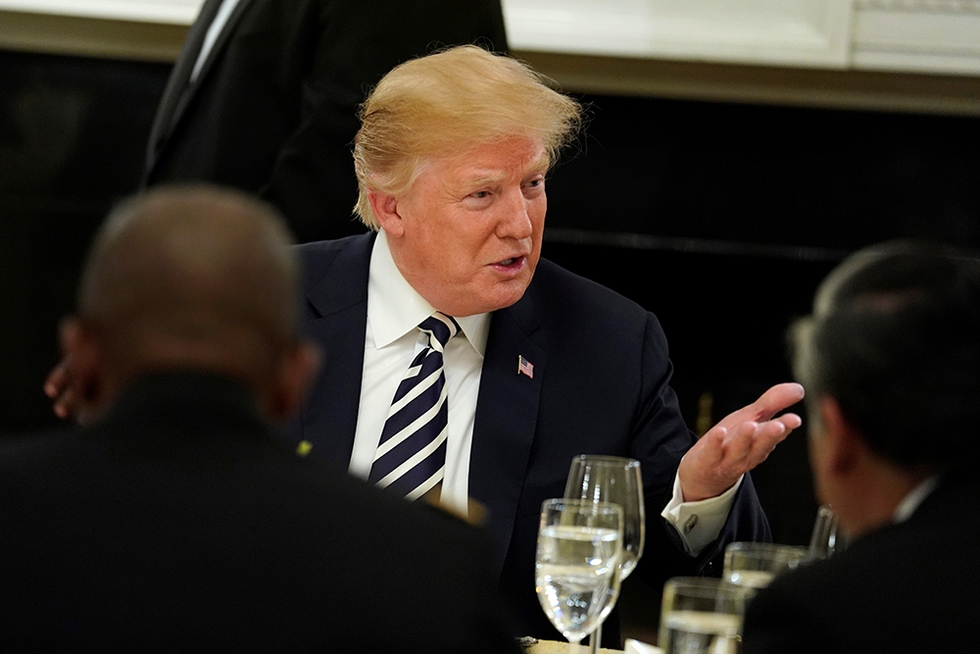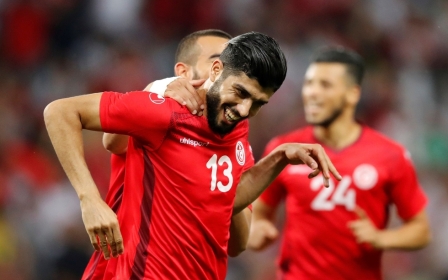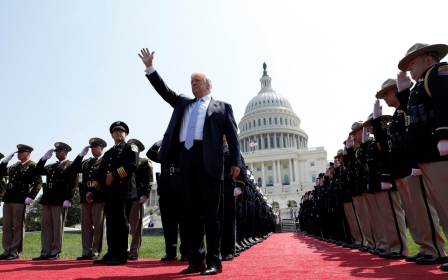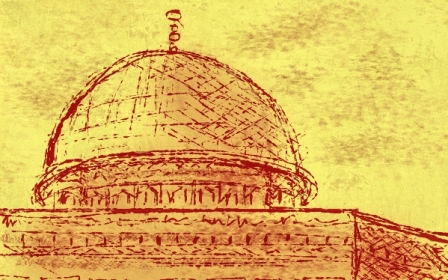Trump hosts Arab envoys at White House iftar - but shuns American Muslims

As Donald Trump hosted his first iftar at the White House as US president, several major American Muslim organisations protested outside with a “Not my Iftar” pop-up event after saying they had not been invited.
Trump did not host an iftar dinner, the traditional meal to break the fast during the Islamic holy month of Ramadan, in his first year in office, in a break with past presidents.
The Wednesday night meal saw Trump sat with Saudi ambassador Prince Khalid bin Salman, and Jordanian ambassador Dina Kawar at the top table, with about 50 guests in attendance in the White House State Dining Room.
Ambassadors were also invited from the United Arab Emirates, Egypt, Tunisia, Iraq, Qatar, Bahrain, Morocco, Algeria and Libya, the AFP news agency reported.
"We are here to mark the Islamic holy month of Ramadan, a great month, a lot of great friends," Trump said.
"To each of you and to the Muslims around the world: Ramadan Mubarak. Tonight, we give thanks for the renewed bonds of friendship and cooperation we have forged with our valued partners from all across the Middle East," he said.
But the guest list did not include representatives of prominent American Muslim organisations, which have clashed with Trump over his efforts to ban citizens from several Muslim nations from entering the US, his use of Islamophobic rhetoric during his election campaign, and concerns about civil liberties infringements disproportionately affecting their communities.
Many Muslim groups have also protested over the US government's support for Israel, which has included the recent move of the US embassy in the country to Jerusalem, and its lack of condemnation of Israel's killing of Palestinian protesters in Gaza.
"We want to point out the hypocrisy of the White House's iftar after they skip it for a year, then launch a Muslim ban, implement extreme vetting, increase surveillance of Muslims in the US and then act like we're all friends," said Robert McCaw, director of government affairs for the Council of American-Islamic Relations (CAIR).
"We think it's the height of hypocrisy for Donald Trump to ban Muslims with one hand and then invite lead diplomats into the White House and break fast with them," Bilal Askaryar, one of the protesters, told AFP.
"It's hypocritical and his actions with the Muslim ban and spreading hate speech about Muslims is un-American and unpresidential."
Omar Noureldin, vice president and spokesman for the Muslim Public Affairs Council, said the organisation would have declined an invitation, even it had been invited.
"Our model of engagement with the government is that we have to believe we can move the needle in some respect, and given the policy and rhetoric from this White House, we don't believe that's possible, so we wouldn't put ourselves in the position to be 'tokenised'," he said.
At the dinner, Trump also said he wanted to pray for “peace and justice”.
“Tonight, as we enjoy a magnificent dinner at the White House, let us strive to embody the grace and goodwill that mark the Ramadan season,” Trump said.
“Let us pray for peace and justice and let us resolve that these values will guide us as we work together to build a bright and prosperous future that does honour and glory to God,” he added.
In his remarks, Trump thanked "the members of the Muslim community at home and abroad for joining us" but mentioned only a US army imam, Dawud Agbere, by name.
As the event unfolded, several journalists on Twitter pointed that none of the invitees appeared to be American Muslims except for the imam leading the prayer.
Even Republican and Trump-supporting Muslim groups were not invited. According to a CNN report, the leader of the group American Muslims for Trump said the White House only invited “Muslim ambassadors and some cabinet members”.
"We do not need an iftar dinner," imam Yahya Hendi, the Muslim chaplain at Georgetown University who attended a White House iftar dinner in 2009 under Barack Obama's presidency, told CNN. "Rather, we need to get the respect we highly deserve. Do not feed us and stab us."
New MEE newsletter: Jerusalem Dispatch
Sign up to get the latest insights and analysis on Israel-Palestine, alongside Turkey Unpacked and other MEE newsletters
Middle East Eye delivers independent and unrivalled coverage and analysis of the Middle East, North Africa and beyond. To learn more about republishing this content and the associated fees, please fill out this form. More about MEE can be found here.




